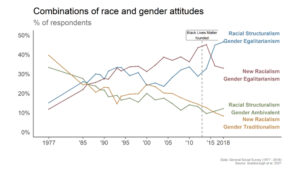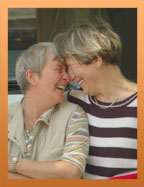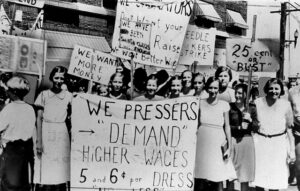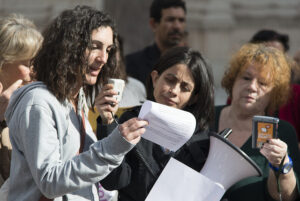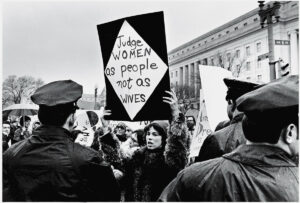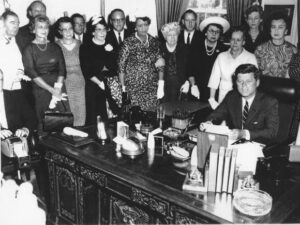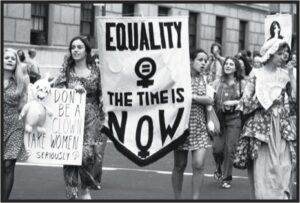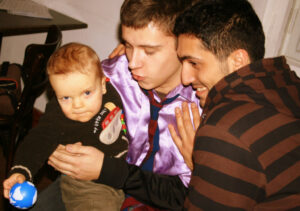- Work-Family Stressors, Gender, and Mental Health during COVID-19 and BeyondA briefing paper prepared by Daniel L. Carson, University of Utah, and Melissa A. Milkie, University of Toronto, for the Council on Contemporary Families symposium The COVID-19 Pandemic and the… Read more: Work-Family Stressors, Gender, and Mental Health during COVID-19 and Beyond
- The COVID-19 Pandemic and the Future of Gender Equality SymposiumA new CCF symposium highlights what emerging research tells us about changes to family & work life during the COVID-19 pandemic and what they mean for the future of gender equality in the U.S.
- Executive Summary: The COVID-19 Pandemic and the Future of Gender EqualityPrepared by Daniel L. Carlson, University of Utah, and Richard J. Petts, Ball State University, for the Council on Contemporary Families symposium The COVID-19 Pandemic and the Future of Gender… Read more: Executive Summary: The COVID-19 Pandemic and the Future of Gender Equality
- Childcare Challenges During the Pandemic and Their Impact on Parents and Care ProvidersA briefing paper prepared by Liana Christin Landivar, Women’s Bureau, U.S. Department of Labor, and Pilar Gonalons-Pons, University of Pennsylvania for the Council on Contemporary Families online symposium The COVID-19… Read more: Childcare Challenges During the Pandemic and Their Impact on Parents and Care Providers
- Pandemic Influences on Gender Inequality in Unpaid WorkA briefing paper prepared by Liana C. Sayer, University of Maryland and Joanna R. Pepin, University of Toronto for the Council on Contemporary Families online symposium The COVID-19 Pandemic and… Read more: Pandemic Influences on Gender Inequality in Unpaid Work
- Mothers Continue to Experience Career Consequences Three Years into the PandemicA briefing paper prepared by Jill E. Yavorsky, University of North Carolina Charlotte, Yue Qian, University of British Columbia, and Liana Christin Landivar, Women’s Bureau, U.S. Department of Labor, for… Read more: Mothers Continue to Experience Career Consequences Three Years into the Pandemic
- Can Remote Work Fuel Gender Equality? Evidence Shows Cause for Optimism but Challenges RemainA briefing paper prepared by Wen Fan, Boston University, and Richard J. Petts, Ball State University, for the Council on Contemporary Families symposium The COVID-19 Pandemic and the Future of… Read more: Can Remote Work Fuel Gender Equality? Evidence Shows Cause for Optimism but Challenges Remain
- Dads Home with Kids Peaked During The COVID-19 Pandemic – But Not for The Reason You ThinkA briefing paper prepared by Arielle Kuperberg, University of North Carolina – Greensboro, Sarah Thébaud, University of California, Santa Barbara, Kathleen Gerson, New York University, and Brad Harrington, Boston College,… Read more: Dads Home with Kids Peaked During The COVID-19 Pandemic – But Not for The Reason You Think
- Leave Laws Support EquityA briefing paper prepared by Jeff Hayes, Women’s Bureau, U.S. Department of Labor[1], and H. Elizabeth Peters, Urban Institute, for the Council on Contemporary Families symposium The COVID-19 Pandemic and… Read more: Leave Laws Support Equity
- Managing the Household is a Stressor for Mothers But Not FathersA new brief report from CCF takes a look at how cognitive labor related to household management influences well-being in different ways for mothers and fathers.
- Between A Rock and A Hard Place: Lessons From The Covid-19 Pandemic About Health Concerns And US Mothers’ EmploymentNew research on how mothers’ concerns about community COVID-19 transmission affects their labor force participation.
- Mine and Yours, or Ours: Are All Egalitarian Relationships Equal?It turns out there is a big difference between dividing up the tasks so that each partner does different ones versus sharing or alternating the same tasks, so that partners contribute equally to each.
- Mothers Are the Primary Earners in Growing Numbers of Families with ChildrenA new study estimates that about 70% of U.S. moms can expect to be primary financial providers before their children turn 18.
- People are Not as Consistent in Their Social Ideologies as We Think: Changing Views on Gender and Race, 1977-2018A new study finds that recognizing one type of inequality doesn’t automatically lead to recognition of another.
- Media Messages to Young Girls: Does “Sexy Girl” Trump “Girl Power”?Children face continued social isolation this fall, with 21 of the 25 largest school districts in the country choosing remote learning instead of in-person classes.
- Before and during COVID-19: Telecommuting, Work-Family Conflict, and Gender EqualityBefore and During COVID-19: Telecommuting, Work-Family Conflict, and Gender Equality A briefing paper prepared by Thomas Lyttelton (Yale Sociology), Emma Zang (Yale Sociology), and Kelly Musick (Cornell Policy Analysis and… Read more: Before and during COVID-19: Telecommuting, Work-Family Conflict, and Gender Equality
- CCF’S Stephanie Coontz Interviewed by Legacy Washington“Legacy Washington recently recorded an interview with author/historian Stephanie Coontz. Watch Legacy Washington historian Bob Young interview Coontz, an expert on family and marriage whose writing influenced the U.S. Supreme… Read more: CCF’S Stephanie Coontz Interviewed by Legacy Washington
- CCF Experts Featured in The Washington Post, Boston Globe, Deseret NewsCCF experts Dan Carlson, Richard Petts, and Joanna Pepin discuss the findings of their latest brief report on gendered division of labor during the covid-19 pandemic with Deseret News’ Lois M.… Read more: CCF Experts Featured in The Washington Post, Boston Globe, Deseret News
- CCF’s Stephanie Coontz featured in Rolling StoneRead her thoughts on the challenges mothers are facing in “Coronavirus Is Killing the Working Mother”
- Men and Women Agree: During the COVID-19 Pandemic Men Are Doing More at HomeA briefing paper prepared by Daniel L. Carlson (University of Utah), Richard J. Petts (Ball State University), and Joanna R. Pepin (University of Buffalo – SUNY) for the Council on… Read more: Men and Women Agree: During the COVID-19 Pandemic Men Are Doing More at Home
- CCF’s Stephanie Coontz for The New York Times: What Can Different-Sex Couples Learn From Same-Sex Couples?Five years after marriage equality, CCF Director of Research and Public Education Stephanie Coontz asks: What can different-sex couples learn from same-sex couples? Featuring research by CCF experts Joanna Pepin, Dan… Read more: CCF’s Stephanie Coontz for The New York Times: What Can Different-Sex Couples Learn From Same-Sex Couples?
- Defining Consent SymposiumDefining Consent takes an unflinching look at the thorny question, what should count as consent to sexual activity – and what should not? In the process, scholars document how to hard it is to define consent or even sexual activity in a college setting.
- KEYNOTE ESSAY: No Easy Answers: Can Colleges Define Consent and Reduce Unwanted Sex? || Stephanie Coontz & Paula EnglandDefining Consent Symposium Keynote No Easy Answers: Can Colleges Define Consent and Reduce Unwanted Sex? The Defining Consent Online Symposium (.pdf) was convened for the Council on Contemporary Families by… Read more: KEYNOTE ESSAY: No Easy Answers: Can Colleges Define Consent and Reduce Unwanted Sex? || Stephanie Coontz & Paula England
- CCF’s Stephanie Coontz on Paying Stay-at-Home Parents in The New York TimesIn a recent article for the New York Times, CCF Director of Research and Public Education Stephanie Coontz discusses the potential implications of paying stay-at-home parents, a role most often… Read more: CCF’s Stephanie Coontz on Paying Stay-at-Home Parents in The New York Times
- Parents Can’t Go It Alone–They Never Have: What to Do for Parents to Help Our Next GenerationParents Can’t Go It Alone introduces you to important new work about what parents need to meet their goals and successfully raise the next generation.
- Why No One Can “Have It All” and What to Do About ItA briefing paper prepared by Kathleen Gerson, New York University, for the Council on Contemporary Families’ Symposium Parents Can’t Go It Alone—They Never Have. If debates about women’s rights, relationships… Read more: Why No One Can “Have It All” and What to Do About It
- New from CCF: Even Gender Inequality is UnequalFOR IMMEDIATE RELEASE CONTACT: Virginia Rutter / Sociology @ Framingham State University vrutter@gmail.com Sociologist Jill Yavorsky conducted a field audit on gender discrimination in hiring and shares this early exclusive… Read more: New from CCF: Even Gender Inequality is Unequal
- Hiring-related Discrimination: Sexist Beliefs and Expectations Hurt both Women’s and Men’s Career OptionsHiring-related Discrimination: Sexist Beliefs and Expectations Hurt both Women’s and Men’s Career Options A briefing paper prepared for the Council on Contemporary Families by Jill Yavorsky, Assistant Professor of Sociology… Read more: Hiring-related Discrimination: Sexist Beliefs and Expectations Hurt both Women’s and Men’s Career Options
- Three Q: Per Coontz, Equality Is an agenda for all working people, not just feminists.3q: Per Coontz, Equality is an Agenda for All Working People, Not Just Feminists Virginia Rutter interviews Stephanie Coontz on the new Council on Contemporary Families brief, Hiring-related Discrimination: Sexist… Read more: Three Q: Per Coontz, Equality Is an agenda for all working people, not just feminists.
- Same-Sex Couples Devote More Attention to End-of-Life Plans than Heterosexual CouplesA Research Brief Prepared for the University of Texas at Austin Population Research Center Research Brief Series Download a PDF of the Brief Mieke Beth Thomeer, Rachel Donnelly, Corinne Reczek,… Read more: Same-Sex Couples Devote More Attention to End-of-Life Plans than Heterosexual Couples
- Transgender Youth Allowed to Use Their Chosen Name Have Fewer Mental Health ProblemsA Research Brief Prepared for the University of Texas at Austin Population Research Center Research Brief Series Download a PDF of the Brief Stephen T. Russell, Amanda M. Pollitt, Gu… Read more: Transgender Youth Allowed to Use Their Chosen Name Have Fewer Mental Health Problems
- Perceptions of Shared Power, Gender Conformity, and Marital Quality in Same- and Different-Sex MarriagesA Research Brief Prepared for the University of Texas at Austin Population Research Center Research Brief Series Download a PDF of the Brief Amanda M. Pollitt, Brandon A. Robinson, and Debra… Read more: Perceptions of Shared Power, Gender Conformity, and Marital Quality in Same- and Different-Sex Marriages
- Do Gay, Lesbian, and Heterosexual Spouses Differ in the Ways They Care for Each Other During Physical Illness?A Brief Prepared for the University of Texas at Austin Population Research Center Debra Umberson, Mieke Beth Thomeer, Corinne Reczek, Rachel Donnelly, and Rhiannon A. Kroeger Introduction An important… Read more: Do Gay, Lesbian, and Heterosexual Spouses Differ in the Ways They Care for Each Other During Physical Illness?
- CCF’s Kuperberg and Walker Publish New Research on College HookupsNew research by CCF Board Member, Arielle Kuperberg, published with CCF Member Alicia Walker in the Archives of Sexual Behavior examines heterosexual college students who hook up with same-sex partners. This… Read more: CCF’s Kuperberg and Walker Publish New Research on College Hookups
- CCF BRIEF: On August 26, 2017, Women’s Equality Day Turns 44On August 26, 2017, Women’s Equality Day Turns 44. A fact sheet compiled for the Council on Contemporary Families by Nika Fate-Dixon and Stephanie Coontz, The Evergreen State College.… Read more: CCF BRIEF: On August 26, 2017, Women’s Equality Day Turns 44
- CCF ADVISORY: On August 26, 2017, Women’s Equality Day Turns 44ADVISORY: Women’s Equality Day Turns 44. Gains, stalls, and setbacks August 25, 2017, Austin, TX: Since 1973, August 26th has been designated as Women’s Equality Day, offering a chance… Read more: CCF ADVISORY: On August 26, 2017, Women’s Equality Day Turns 44
- Joanna Pepin and David Cotter: Trending Towards Traditionalism? Changes in Youths’ Gender IdeologyTrending Towards Traditionalism? Changes in Youths’ Gender Ideology A briefing paper prepared for the Council on Contemporary Families by Joanna R. Pepin, Department of Sociology, University of Maryland and David… Read more: Joanna Pepin and David Cotter: Trending Towards Traditionalism? Changes in Youths’ Gender Ideology
- The Date’s not Dead after all: New Findings on Hooking Up, Dating and Romantic Relationships in CollegeA Briefing Paper Prepared for the Council on Contemporary Families by Arielle Kuperberg, Ph.D., Assistant Professor of Sociology, The University of North Carolina at Greensboro and Joseph E. Padgett, M.A.,… Read more: The Date’s not Dead after all: New Findings on Hooking Up, Dating and Romantic Relationships in College
- Josh Coleman and Barbara Risman weigh-in on the nation’s obsession with other peoples’ romancesIn his New York Times opinion piece, Americans Put Too Much Weight in Romantic Love, CCF Board member Josh Colemen comments on the nation’s obsession with romantic relationships – reflecting on examples from the Clinton presidency and… Read more: Josh Coleman and Barbara Risman weigh-in on the nation’s obsession with other peoples’ romances
- CCF Symposium on Housework, Gender and Parenthood: OverviewCCF Symposium on Housework, Gender and Parenthood: Overview An introduction to the Council on Contemporary Families Online Symposium on Housework, Gender, and Parenthood by Stephanie Coontz, Council on Contemporary Families… Read more: CCF Symposium on Housework, Gender and Parenthood: Overview
- The Tricky Business of Sorting Out Sexual Assault: An Introduction to The CCF Symposium On Intimate Partner ViolenceTHE TRICKY BUSINESS OF SORTING OUT SEXUAL ASSAULT: AN INTRODUCTION TO THE CCF SYMPOSIUM ON INTIMATE VIOLENCE by Stephanie Coontz , Director of Research and Public Education, Council on Contemporary Families,… Read more: The Tricky Business of Sorting Out Sexual Assault: An Introduction to The CCF Symposium On Intimate Partner Violence
- Brief: Back on Track? The Stall and Rebound in Support for Women’s New Roles in Work and Politics, 1977-2012Six charts demonstrate a renewed progress towards gender equality starting around 2006.
- Brief: It’s Not Just Attitudes: Marriage Is Also Becoming More EgalitarianHusbands and wives who share similar levels of education now enjoy a lower risk of divorce than those in which husbands have more education—a trend consistent with a shift toward egalitarian marriages.
- Brief: Overwork May Explain 10 Percent of Men’s Wage Advantage Over WomenThe growing wage premium for long work hours slows progress toward gender equality. If the relative hourly wages for overwork had stayed constant between 1979 and 2007, the gender gap in wages would be about 10 percent smaller than it is today.
- News from CCF: After a Puzzling Pause, the Gender Revolution ContinuesThe Council on Contemporary Families releases The Gender Revolution Rebound Symposium as public support for working mothers and dual-earner families is on the rise; new research suggests that in marriages formed since the early 1990s, men and women are much more happy with non-traditional arrangements than in the past.
- Brief: Is the Glass Half Empty, or Three-Quarters Full?This look at sexual frequency among younger couples in equal marriages refutes recent claims that when a man share the housework equally, it is bad for the couple’s sex life.
- CCF Civil Rights Symposium: Women’s Changing Social Status since the Civil Rights ActToday the Council on Contemporary Families releases the third set of papers in a three part symposium marking the 50th anniversary of the Civil Rights Act. The first two sets of papers described changes in America’s religious and racial-ethnic landscape in the half century since it became illegal to discriminate on the basis of religion, skin color, national origin, race, ethnicity or gender.
- CCF Civil Rights Symposium: Dilemmas Facing High-Achieving Career WomenBy Joan C. Williams University of California, Hastings College of the Law Fifty years after discrimination on the basis of sex was outlawed, women have made tremendous progress moving into… Read more: CCF Civil Rights Symposium: Dilemmas Facing High-Achieving Career Women
- CCF Civil Rights Symposium: Civil Rights for Women, 1964-2014By Max Coleman, Research Intern Council on Contemporary Families Fifty years ago, the United States adopted the Civil Rights Act, prohibiting discrimination on the basis of race, ethnic origin, religion,… Read more: CCF Civil Rights Symposium: Civil Rights for Women, 1964-2014
- “Can I watch?” Sometimes women kissing women isn’t about youIs there more going on in the hookup scene than meets (men’s) eyes? The college hookup scene is typically understood as a male-dominated environment—where men are mainly in charge of sexual initiation, parties are often centered around fraternity houses, treating women as sex objects is common, and women engage in sexual displays, including kissing each other, in order to arouse male interest. Yet, in the forthcoming April 2014 issue of Gender & Society, a team of researchers observes that for some women the super-straight environment of college hookups is also a setting “to explore and to later verify bisexual, lesbian, or queer sexual identities.” Turns out public kissing and threesomes play an important role—and that not all of that sex play is about performing for men’s pleasure.
- You’ve come a long way baby? Seeing men as more than sperm donorsRecent headlines such as “Men, Who Needs Them?” and “Why Fathers Really Matter” showcase a growing debate about the importance of including men in discussions of gender inequality. Two new studies from Gender & Society turn attention to areas in which men have long been ignored: at home, in the study of conception, pregnancy and childbirth, and at work, in the caregiving professions—particularly nursing. New research demonstrates under what conditions men’s contributions are slowly becoming more visible and what the benefits of that are (and can be).
- CCF Equal Pay Symposium: 50 Years Since the Equal Pay Act of 1963Fifty years ago this week, on June 10, 1963, President John F. Kennedy signed the Equal Pay Act, amending the earlier Fair Labor Standards Act of 1938, to “prohibit discrimination on account of sex in the payment of wages by employers.” So, how’s that going?
- The Gender Pay Gap by Race and EthnicityOn average, white women earn 81 percent of what white men make. At first glance it may appear that there is more gender equality among minority men and women than among whites. Hispanic or Latina women make 88 percent of what Latinos do and African American women make 90 percent of what their male counterparts make. But when we add race to gender, these pay gaps become a veritable chasm. Read more to find out.
- Researchers find that your Social Status And Your Gender Influences How Others See Your RaceResearchers have long known that people make assumptions about people’s race based on social status cues, but a new study from Gender & Society demonstrates that observers take into account a wide range of factors in determining the race of people they see, including what they know about someone’s income, home address or marital status.
- Leaning In Is Not the Same for Everyone: New Study on Women in “Men’s Jobs” Provides Discouraging Answers About the Impact of OverworkMEDIA CONTACT: Virginia Rutter Framingham State University Sociology Phone: 206 375 4139 Email: vrutter@gmail.com Back in the 1800s, the U.S. labor movement aimed at reducing impossibly long working hours—and succeeded with… Read more: Leaning In Is Not the Same for Everyone: New Study on Women in “Men’s Jobs” Provides Discouraging Answers About the Impact of Overwork
- The Rise of Women: The Growing Gender Gap in Education and What It Means for American SchoolsAccording to the current brief report, “the most important predictor of boys’ achievement is the extent to which the school culture expects, values, and rewards academic effort.” Sociologists Claudia Buchmann (Ohio State) and Thomas DiPrete (Columbia University) present their in-depth findings on the much-debated reasons why women outstrip men in education—also the subject of their new book—in “The Rise of Women: The Growing Gender Gap in Education and What it Means for American Schools.”
- New CCF Briefing Report: Why Males Lag Behind in Education – and Why “Boy-Friendly” Schools Aren’t the FixWhen did the gender gap begin? According to this CCF briefing report, some of the gender gap in schooling is new and some is not. For about 100 years, the authors explain, girls have been making better grades than boys. But only since the 1970s have women been catching up to—and surpassing—men in terms of graduation rates from college and graduate school.
- Why Don’t Men Finish College as Often as Women? New Study Contests Idea that Men are just SlackersWomen now earn 58 percent of all undergraduate degrees. Not only do they enter college at higher rates than men, they are less likely to drop out once they enter. According to conventional wisdom, this is because men are less studious and committed to school than women. However, a new study, “Gender, Debt, and Dropping Out of College,” released this month in the journal Gender & Society, suggests quite a different reason for men’s dropout rates.
- Sexual Mystiques – Do we still like it old school?The last bastion of the feminine mystique may be a sexual mystique. Like the feminine mystique before it, the sexual mystique relies on the fantasy that men and women live in different worlds, and that these differences must be maintained for everyone to be turned on and sexually satisfied. According to this mystique a happy sex life requires a macho man who is in control and a woman who is charged up with desire, yet submissive and teachable.
- Latinas’ MystiquesLatinas are often described as being either too devoted to their cultural values or not sufficiently connected to them. They are often told that they must choose “one of way of being,” either Latina or American. This expectation not only implies that there is an “authentic” Latina femininity and American femininity, but that their success depends on enacting the “right” femininity.
- The Unfeminine Mystique – Stereotypes about African-American WomenThe gendered mystique that still poses barriers to African-American women in their personal and public lives is perhaps best described as an “unfeminine mystique” – the idea that they have characteristics and embrace lifestyles that are outside the boundaries of “real” womanhood. This “unfeminine mystique” has plagued African-American women for more than 200 years.
- The Rise of the “Motherhood Mystique”In the 1950s and early 1960s, a woman’s first priority, even if she had superpowers, was to catch and keep a man. She caught him by being beautiful; she kept him by being adoring and submissive. Whatever powers she might possess, be they brains, creativity, or levitation, had to be suppressed as an unforgiveable threat to the male ego. Keeping a happy marriage was her primary aim; a clean house came second; and well-adjusted children, third.
- The Youth and Beauty Mystique – Its Costs for Women and MenToday, a male manager who selected only young, beautiful women employees would be seen as a Neanderthal. But in the personal sphere, when a 50 year-old single man dates only much younger women, and chooses one to marry, few of his friends question his sense of entitlement to a younger woman.
- Mystifying “The Feminine Mystique”: Four Myths About Betty Friedan and FeminismIn the half century since the publication of The Feminine Mystique, many myths have grown up about what Friedan actually wrote and what the feminist movement, which she helped found, has and has not achieved. Here are four of the most common.
- Lesbian MystiquesBetty Friedan highlighted the many ways that cultural images and expectations of gender in the 1950s and 60s held women back. The expectations derived most obviously from patriarchy, which Friedan recognized, but also from white supremacy, capitalism, and heterosexism, which she did not. In Friedan’s time the feminine mystique certainly constrained women’s senses of themselves and their possibilities, but at least it recognized women as a group. The “lesbian mystique,” by contrast, denied lesbians even existed. The concept was literally inconceivable. In the 19th century, Queen Victoria is rumored to have flatly proclaimed: “Women don’t do that.”
- Feminine Mystique Symposium: Feminism and Families TodayOn the 50th Anniversary of The Feminine Mystique, Council on Contemporary Families Scholars identify what’s changed—and what hasn’t.
- Gender in ‘Jeopardy!’: Uptalk isn’t just for Valley Girls?By Thomas J. Linneman Associate Professor of Sociology The College of William and Mary tjlinn@wm.edu; 804-822-2282. He didn’t provide an answer in question format, but The College of William & Mary’s Thomas Linneman told… Read more: Gender in ‘Jeopardy!’: Uptalk isn’t just for Valley Girls?
- It’s Not Just City Folk: Gays and Lesbians Experience Striking Gains in Acceptance in All Regions and Subgroups of AmericaAt a time of dramatic change in attitudes towards gays and lesbians in America, a new study released this month in Gender & Society highlights the diversity of gay and… Read more: It’s Not Just City Folk: Gays and Lesbians Experience Striking Gains in Acceptance in All Regions and Subgroups of America
- Myths About Later Motherhood: Fact SheetJuly 25, 2012 Download Fact Sheet as a PDF Download Fact Sheet as a Word Document Today, almost 40 percent of all babies in the United States are born to… Read more: Myths About Later Motherhood: Fact Sheet
- Women’s Education and their Likelihood of Marriage: A Historic ReversalBy Paula England Professor of Sociology New York University Email: pengland@nyu.edu Phone 650-815-9308 Jonathan Bearak Ph.D. Candidate New York University Email: jonathan.bearak@nyu.edu Download Full Report as a PDF Download Full… Read more: Women’s Education and their Likelihood of Marriage: A Historic Reversal
- Philip Cohen Reponds to International Women’s Day DiscourseFor more than 30 years, people concerned about the global inequality between men and women have been circulating the claim that women receive only one-tenth of world income and own only 1 percent of the world’s property. This claim was repeated on CNN and other outlets for International Women’s Day. There is a great deal of gender inequality in the world, and much of the burden of global economic inequality in particular is borne by the women of the poorest countries. However, these facts are simply not true, and it we would all benefit from a better-informed discussion of gender inequality.
- CCF Gender Revolution SymposiumIn 1973 – less than 40 years ago — the Supreme Court ruled that sex-segregated employment ads were illegal. The next two decades saw massive, rapid action in eradicating old laws and prejudices. But now three researchers argue that progress toward gender equality has slowed or even stalled since the early 1990s. In this CCF online symposium in time for International Women’s Day, David A. Cotter, Joan M. Hermsen and Reeve Vanneman present their discussion paper “Is the Gender Revolution Over?” and CCF fellows from around the United States offer a series of responses that add to this discussion.
- CCF Gender Revolution Symposium: What If Women Were In Charge?Philip N. Cohen, Ph.D. Department of Sociology University of Maryland, College Park Phone: 919 260 2868 Email: pnc@umd.edu Few would deny there was a gender revolution in the world of… Read more: CCF Gender Revolution Symposium: What If Women Were In Charge?
- CCF Gender Revolution Symposium: No Stall in the Sexual RevolutionBy Brian Powell, Ph.D. James H. Rudy Professor of Sociology Indiana University Phone: 812-855-7624 (office); 812-360-0474 (cell) Email: powell@indiana.edu The gender revolution may have been stalled, but the sexual revolution… Read more: CCF Gender Revolution Symposium: No Stall in the Sexual Revolution
- CCF Gender Revolution Symposium: Divergent Revolutions for Blacks, Latinos, and WhitesBy Janelle Jones Labor Market Researcher, Center for Economic and Policy Research Phone: 202-293-5380 Email: jones@cepr.net As Cotter, Hermsen, and Vanneman argue, the extent of the gender revolution has been… Read more: CCF Gender Revolution Symposium: Divergent Revolutions for Blacks, Latinos, and Whites
- Myths About College-Educated Women and MarriageThe marriage prospects of educated women have been hotly debated in the media in recent weeks. Are highly educated women more likely to wind up single than their less-educated counterparts? Would they do better to settle for a “good enough” man before they miss their chance altogether? Or are educated women now MORE likely to marry then their less-educated counterparts? But if so, do higher expectations make them more discontented with marriage?
- Experts Respond to “Men’s Changing Contributions to Housework and Childcare”Experts Respond to “Men’s Changing Contributions to Housework and Childcare”
- How Should We Think About the Taxpayer Consequences of Divorce?A new report, “The Taxpayer Costs of Divorce and Unwed Childbearing: First-Ever Estimates for the Nation and all 50 States”, raises the question of how much divorce costs taxpayers. This… Read more: How Should We Think About the Taxpayer Consequences of Divorce?
- Women’s Money Matters: Earnings and Housework in Dual-Earners FamiliesDownload Full Report as a PDF Download Full Report as a Word Document What reduces women’s housework burden? A new study shows that on average it doesn’t have much to… Read more: Women’s Money Matters: Earnings and Housework in Dual-Earners Families
- A “Stalled” Revolution or a Still-Unfolding One?In 1960, only 40 percent of women aged 25-54 years old were in the labor force. By 2000, 70 percent of women that age were employed. For married women with children aged six through seventeen, employment rates grew from 40 percent in 1960 to a peak of almost 80 percent by the new millennium. Sixty percent of married women with children under school age now work for pay, compared to less than 20 percent in 1960. Mothers are still more likely than fathers to work part-time, but they are less likely to do so than they were in the past. Wives work for pay eighty percent of the hours their husbands work for pay, a huge increase since the 1960s.
- The Steady Rise of Non-Traditional Romantic UnionsBy Michael J. Rosenfeld Professor of Sociology Stanford University mrosenfe@stanford.edu, 415.205.1892 Prior to 1970, the overwhelming majority of all couples were same-race married couples. Couples who lived together outside of marriage,… Read more: The Steady Rise of Non-Traditional Romantic Unions
- Myths and Realities About Same-Sex FamiliesJuly 6, 2006 By Gary Gates Senior Research Fellow The Williams Institute UCLA School of Law gates@law.ucla.edu; 310.825.1868 The New York Court of Appeals ruled this morning that the state… Read more: Myths and Realities About Same-Sex Families
- Reversing Course: The Impact of “Faith-Based” Sexual Health and Family Planning Policies at Home and AbroadBy AnneMarie Murdock Research Intern Council on Contemporary Families Download Full Report as a PDF Download Full Report as a Word Document Recent trends in U.S. sexual education and reproductive… Read more: Reversing Course: The Impact of “Faith-Based” Sexual Health and Family Planning Policies at Home and Abroad
- Will Providing Marriage Rights To Same-Sex Couples Undermine Heterosexual Marriage? Evidence From ScandinaviaDownload Full Report as a PDF Download Full Report as a Word Document By M. V. Lee Badgett Professor of Economics University of Massachusetts, Amherst As a way to understand… Read more: Will Providing Marriage Rights To Same-Sex Couples Undermine Heterosexual Marriage? Evidence From Scandinavia





